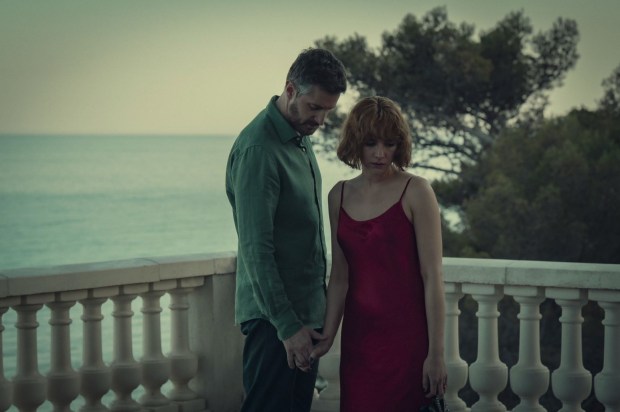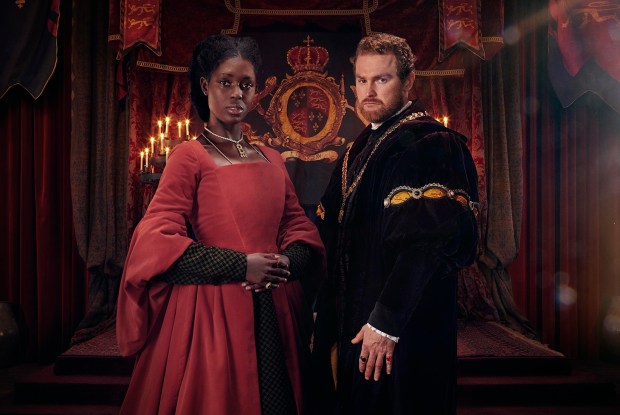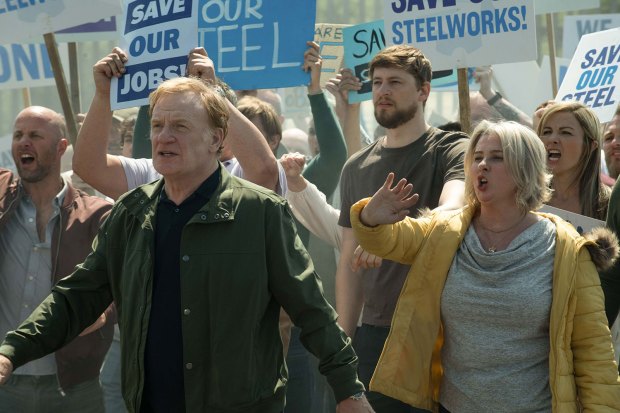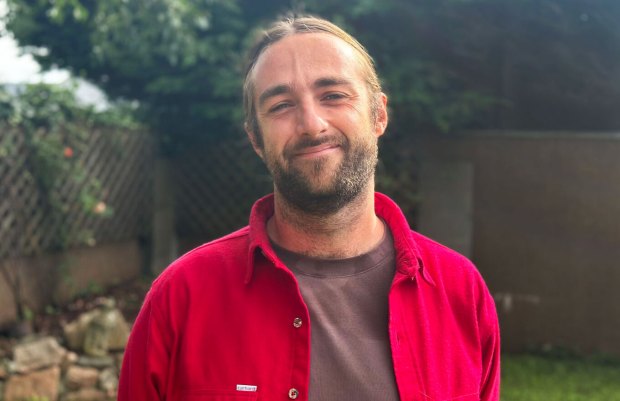After the all-conquering success of Fleabag — her brilliant dark comedy about a smart but rudderless young woman in London — Phoebe Waller-Bridge could presumably have done whatever she wanted for her next TV project. And what she wanted to do next, it now turns out, is very odd indeed.
Killing Eve (BBC1, Saturday) — which Waller-Bridge has adapted from a novel by Luke Jennings but doesn’t appear in — has its moments of recognisably ordinary life. But not many. Near the beginning, for example, Eve Polastri (Sandra Oh) woke with a Saturday-morning hangover and unwelcome memories of her karaoke performance the night before. Yet within minutes she’d been called into work — which in her case meant arriving at MI5 to be informed that a sex-trafficking Russian politician had just been assassinated in Vienna by having his femoral artery sliced as he walked home with his glamour-model junkie girlfriend Kasia.
As the hangover gags continued, Eve had a sudden hunch that the killer must be a woman. In the traditional way of thriller protagonists, she then went rogue: defying her bosses by interviewing Kasia who’d somehow fled instantly to London while still high on heroin.
Meanwhile, we already knew that Eve’s theory was right, as we’d seen the assassin for ourselves. After flying home from Vienna to Paris, Villanelle (Jodie Comer) also gave a handy demonstration of how chic she is by swanning sexily around the city to the accompaniment of some unusually cool French pop music — until a man with a beard arrived in her apartment and asked her to kill a Mafia leader in Tuscany. This, she efficiently did in a pair of fetching denim shorts and by stabbing him through the eye with a large hairpin. But even then, she barely had time to unwind with an interracial threesome before the bearded bloke returned and ordered her to murder Kasia.
If this makes Killing Eve sound stylised and implausible, that wouldn’t be inaccurate. But, as a criticism, it would also be beside the point — because Waller-Bridge appears to be on an unexpected mission to revive a genre that last flourished long before she was born.
Older readers may remember that in the 1960s and ’70s one big TV staple was the international adventure series (The Saint, The Champions, The Persuaders, The Avengers, Department S… I really could go on) where plausibility was left far behind in the quest for glamour, thrills and all-round stylishness. And it’s in this tradition that Killing Eve squarely belongs: both at the level of individual lines (‘Your train leaves in an hour,’ Villanelle’s boss told her after issuing his demand to kill Kasia) and in its winning ability to take seriously the business of not taking itself too seriously. The result, as in those cheerfully bonkers series of old, is distinctly camp, undeniably preposterous and weirdly good fun.
In its own way, Michael Palin in North Korea (Channel 5) is pretty odd too. Faced with what Palin himself initially described as ‘a dystopian land of military parades, repression and barbaric prison camps’, some TV presenters might have been tempted to go in hard — but not this one. In Thursday’s first episode, Palin did make it clear that everything we were seeing had been vetted by the North Korean authorities — although he didn’t entirely blame them for that: ‘They do things completely differently here. We can’t just come blundering in and say, “We’re from the West.”’ Occasionally, he even ventured a reservation or two. (‘I worry that the people are putting their faith in leaders who don’t always act in their best interests,’ he remarked at one particularly stern point.) On the whole, though, his customary geniality was undimmed. He also stuck firmly to his trusty methods of charming the locals by smiling a lot, eating their food with theatrical relish and being rubbish at any activities he was invited to try. All in all, in fact, he ended up having rather an agreeable time, complete with a massage at Pyongyang’s new luxury health spa.
This approach naturally ensured that Palin never came close to penetrating the surface of North Korean life. Nonetheless, it did have the surprising effect of making that surface seem not only fascinating and important in itself, but even quite beguiling. ‘Much of me wants to take everything at face value,’ Palin admitted near the end — and by then you could almost see what he meant. All the people he met (or was allowed to meet) seemed to have genuinely bought into the country’s dream of national unity, and to be extremely proud of it. And this, in turn, felt like a revealing and often overlooked reason why this irreducibly peculiar country has survived unchanged for so long. Together, of course, with all that repression and all those prison camps.
Got something to add? Join the discussion and comment below.
Get 10 issues for just $10
Subscribe to The Spectator Australia today for the next 10 magazine issues, plus full online access, for just $10.
You might disagree with half of it, but you’ll enjoy reading all of it. Try your first month for free, then just $2 a week for the remainder of your first year.














Comments
Don't miss out
Join the conversation with other Spectator Australia readers. Subscribe to leave a comment.
SUBSCRIBEAlready a subscriber? Log in